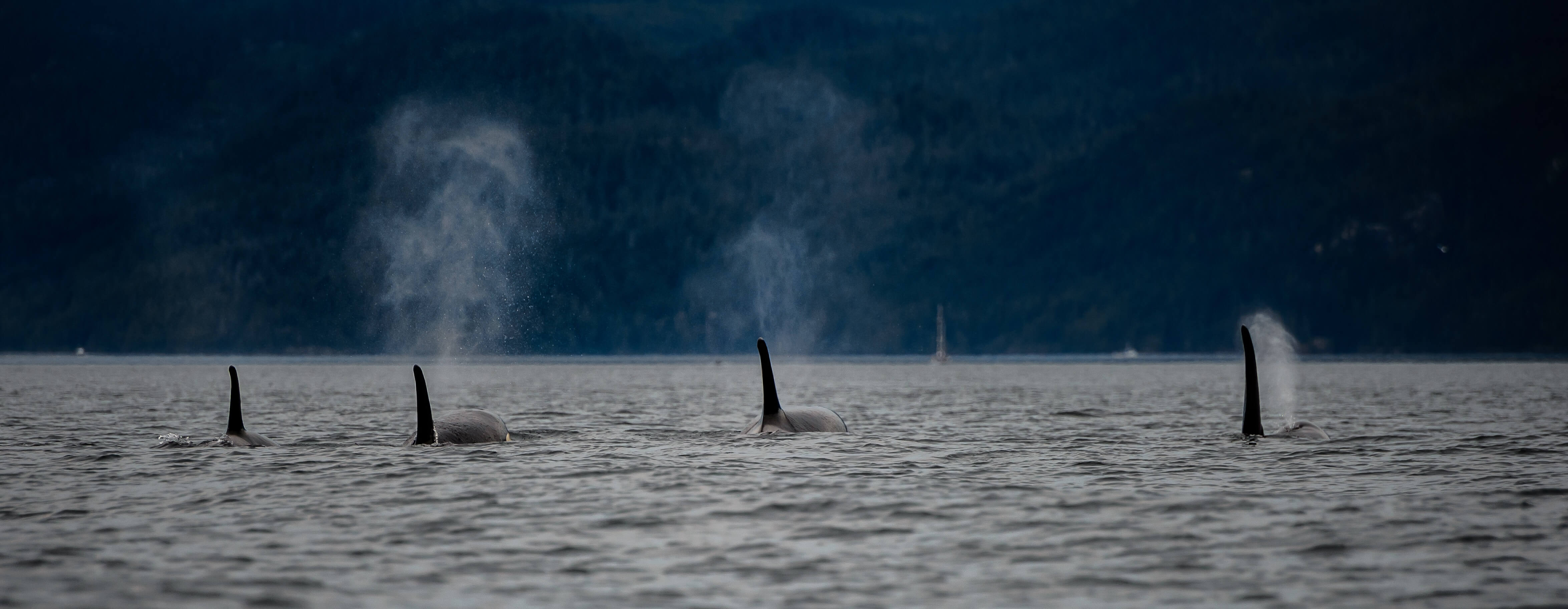
Dying orcas get their day in court
September 21, 2018
Southern resident killer whales are teetering on the brink of extinction. World Wildlife Fund Canada and our partners are taking the federal government to court to try to ensure their survival.
Lawyers from Ecojustice asked the Federal Court today to review Ottawa’s failure to recommend an emergency order to protect southern resident killer whales under the Species at Risk Act. The legal action was filed on behalf of World Wildlife Fund Canada, David Suzuki Foundation, Georgia Strait Alliance, Natural Resources Defense Council, and Raincoast Conservation Foundation.
West Coast icons
This unique population of whales, an iconic symbol of the West coast also known as orcas, number only 75 individuals. Declines in chinook salmon, their preferred food, and disturbances in their habitat make it harder for them to hunt. Legally declared endangered under the Species at Risk Act in 2003, southern residents waited 14 years to get a recovery action plan from the federal government. But even after the plan was released in March of 2017, little changed to improve the orcas’ long-term prospects.
Southern residents sharing salmon © Rachael Merrett/Georgia Strait Alliance
On the brink
During the past two years, seven adult southern resident killer whales have died and no new calves from this population have survived. Recently, the orca researchers call J35, and sometimes given the name Tahlequah, captured international attention after her calf died and she carried it for 17 days – an unusually long time. At the same time, veterinarians gave another female orca antibiotics to try to improve her condition, as she was thought to be sick enough to die.
The legal fight
In January of 2018, WWF-Canada joined a coalition of conservation groups to petition the Federal Government to enact an emergency order that would put in place strong protection measures to safeguard the whales.
Emergency orders, a rarely used tool under the Species at Risk Act, could have cut through red tape to trigger protections for a population on the verge of starvation.
After pressure from WWF-Canada and the other environmental groups, the federal government officially acknowledged in May of 2018 that the southern residents do face “imminent threats” to their survival and recovery. This should have triggered a recommendation to cabinet to issue an emergency order under the Species at Risk Act.
A SRKW breaching © Rachael Merrett/Georgia Strait Alliance.
Unfortunately, the fedeal government remained undecided on an emergency order, and failed to put in place equivalent measures to reduce threats to these orcas. While it’s true that the government has taken some actions, the measures they chose are either temporary, voluntary or provide no long-term guarantee. Some industries, such as shipping, have shown leadership with voluntary trials to reduce noise exposure to the whales. But such efforts need longer-term support and regulatory clarity from government to be meaningful.
WWF-Canada is taking this legal action to ensure the threats faced by the orcas are reduced quickly and the measures are sustained, because southern resident killer whales will need support for a long time if their population is to be rebuilt.
What the government can do
Some things the government should do include:
- Further restricting salmon fisheries and implementing rebuilding plans for chinook stocks.
- Closing foraging areas to recreational and commercial whale-watching boats
- Adopting mandatory underwater noise and pollution-reduction targets in the orcas’ critical habitat.
The federal government must do its part and use all the tools at its disposal to address all the threats these orcas face. Southern residents have been waiting for years for someone to throw them a lifeline. We’re now hoping it comes from the courts.
